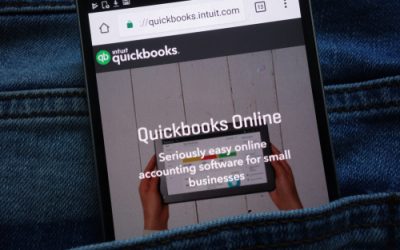
QuickBooks is an amazingly intelligent piece of software that can revolutionize your business accounting. Once you get started with QuickBooks, knowing what NOT to do is as important as learning best practices. Avoid the following:
Skipping basic training
Most people learn by doing. Website interfaces are so intuitive that people expect to know how to operate systems without tutorials or training. Do you really want to leave your business to trial and error? Without proper training, you run the risk of incorrect financials, insufficient tax payments, or regulatory non-compliance. Before you crack open the books, take the time to go through basic training. Watch videos, go through tutorials, check out help menus, and even take a class. Local libraries offer QuickBooks training, as do adult vocational schools. Want one-on-one training from a QuickBooks ProAdvisor? Click here to send JADDE Financial Solutions a message! You can waste time and money muddling through the program, or you can learn how to take advantage of all the features QuickBooks has to offer.

Letting entries pile up
Unless you’re an accountant, most people hate paying bills, balancing checkbooks, and recording expenses. Letting your QuickBooks entries pile up can snowball quickly. Weeks of paperwork can quickly balloon to months and become overwhelming. If you don’t take notes it’s easy to forget what receipts were for; this can lead to panicky scrambling as you try to remember your expenses. Diligence is important for keeping accurate records. If you don’t enter everything immediately then make a quick note on the receipt so you can easily categorize it later. Designate a time every week for QuickBooks entries and reward yourself for being a good record-keeper.

Throwing away receipts
Having a clean desk and an empty file cabinet is a wonderful feeling. Getting rid of paper clutter helps clear your mind, reduces stress, and lets you focus on your work. However, the path to paperless does not run directly to the shredder. Recording your expenses does not provide accurate proof that you purchased what you claim you did. Even if you save the credit card statements it still will not show that you made a qualifying business expense. In the event of an audit your purchases will need justification. Save business expense receipts in a file so you have proof of their legitimacy. If you want to go paperless, scan them so you have a digital copy. Then shred away!
Taking too many deductions
It’s important to know what qualifies as a business expense and what doesn’t. The IRS doesn’t take kindly to improper business deductions and if you write off too much you can raise flags. An audit is costly and time-consuming. Look up qualifying deductions at irs.gov or consult with an expert accounting firm. JADDE Financial Solutions can guide you through your expense reports to avoid running into this problem when tax season rolls around.

Being too broad with your categories
When classifying your income and expenses, it’s important to be as specific as possible when identifying the category for filing. If your income comes from a number of categories, you will need to keep these separate. If you file them all simply as income you won’t have an accurate picture of how your business is doing. Similarly, expenses need to be carefully classified because not all expenses are fully deductible. To maximize your deductions, keep your categories specific.
QuickBooks accounting can help your business run like a well-oiled machine. Avoiding these habits can get your business on the path to impeccable bookkeeping.



